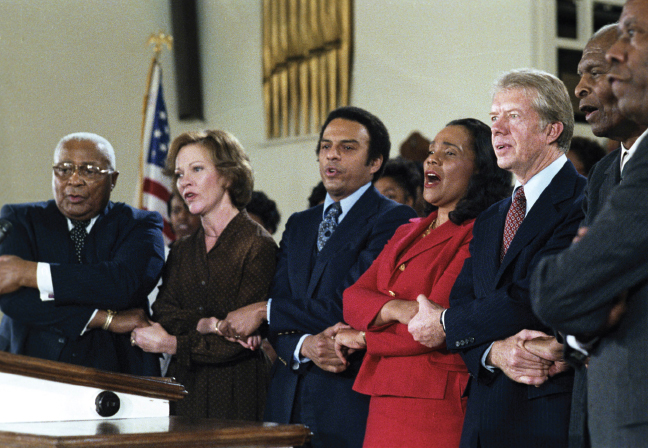Why did the “outsider” presidency of Jimmy Carter fail to gain broad support?
Printed Page 905

CHRONOLOGY
1977
- – United States signs Panama Canal treaty.
1978
- – Congress deregulates airlines.
1979
- – Camp David accords.
- – Carter establishes formal diplomatic relations with China.
- – Soviet Union invades Afghanistan.
- – Hostage crisis in Iran begins.
1980
- – Congress deregulates banking, trucking, and railroad industries.
- – Congress passes Superfund legislation.
JIMMY CARTER PROMISED a government that was “competent” as well as “decent, open, fair, and compassionate.” He also warned Americans “that even our great Nation has its recognized limits, and that we can neither answer all questions nor solve all problems.” Carter’s humility and personal integrity helped revive trust in the presidency, but he faltered in the face of domestic and foreign crises.
Energy shortages and stagflation worsened, exposing Carter’s deficiencies in working with Congress and in rallying public opinion. He achieved notable advances in environmental and energy policies, and he oversaw foreign policy successes concerning the Panama Canal, China, and the Middle East. Yet near the end of his term, Soviet-American relations deteriorated, new crises emerged in the Middle East, and the economy plummeted.